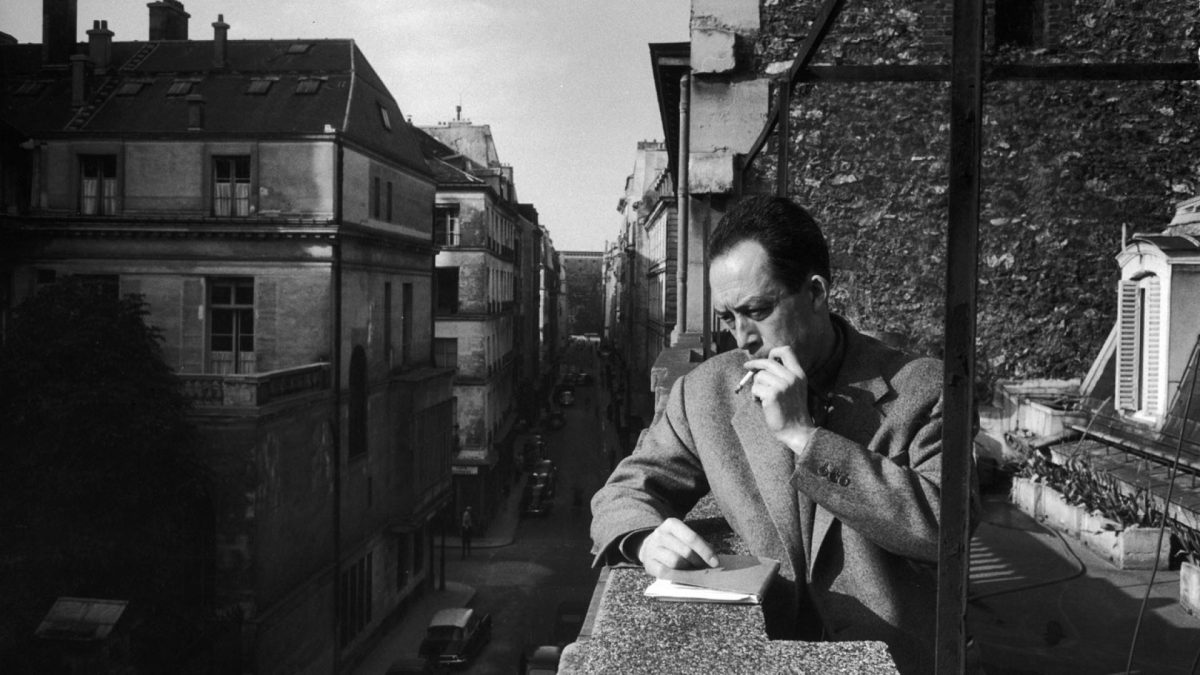“The evil that is in the world always comes of ignorance, and good intentions may do as much harm as malevolence, if they lack understanding.” – Albert Camus
“There is always a philosophy for lack of courage.” – Albert Camus
Although Camus’ birthday was on Nov. 7, I never hesitate at the opportunity to write about him.
One thing I remember clearly about reading Camus is his “Reflections on the Guillotine.” If you care to investigate the depths of life and humanity, you cannot deny Camus’ prose, especially in the aforementioned text. Camus writes of his father, “One of the few things I know about him, in any case, is that he wanted to witness the execution, for the first time in his life.”
When an assassin in Camus’ native Algeria murdered a family of farmers (including the children) and was sentenced to death, Camus’ father eagerly ventured to be a spectator on the day of the slayer’s execution. When the day finally came, Camus knew nothing of what his father saw. His mother described his father’s face as “distorted” and disfigured. One can only assume the disgust he must have felt. Watching an execution is a rare experience, one (hopefully) none of us will ever see.
A young Camus remembers his father vomiting and being unable to come to terms with the guillotine. Camus reflects, writing, “Instead of thinking of the slaughtered children, he could think of nothing but that quivering body that had just been dropped onto a board to have its head cut off.”
There is more meaning to Camus’ words than a simple polemic against what he perceived as organized barbarism. They teach us about the human psyche and the sadistic impulses that strain our societies—a phenomenon that we ought to always be prepared for.
When Camus was writing about capital punishment, he was disturbed by the normalization of it. Whether one supports it or not, one must admit that the guillotine is a barbaric method of execution. Why was it normalized and sanctioned by the classy elite of society?
“People write of capital punishment as if they were whispering. In our well-policed society we recognize that an illness is serious from the fact that we don’t dare speak of it directly,” Camus writes.
What is the importance of this? Think of our current world and the constant threat of repression that results from addressing the fraught enigmas that are littered throughout our discourse and minds. Camus realized this in his time and saw through the fog of silence.
He continued, writing, “As a writer, I have always loathed avoiding the issue; as a man, I believe that the repulsive aspects of our condition, if they are inevitable, must merely be faced in silence. But when silence or tricks of language contribute to maintaining an abuse that must be reformed or a suffering that can be relieved, then there is no other solution but to speak out and show the obscenity hidden under the verbal cloak.”
Perhaps the most intriguing part of Camus is his ability to transform daring ideas into concise prose. His writings are based on a high degree of scruple that force the reader to think, but more importantly, to act.
There is not enough time in one’s life to write or think about Camus and his impact. I have chosen the passages in this article because they are eerily relevant to our modern situation. As individual humans, we must quit “avoiding the issue.”
We must abandon the notion that silence and passiveness are the keys to solving problems we are confronted with. One could pose the question: Why should I care if it doesn’t affect me?
In some situations this is permissible. Minding your own business does have some utility. However, where is this line drawn? One must not venerate the actions of those who impose suffering on others. Showing reverence for silence is upholding the thing that imposes it in the first place.
We must always remain open and truthful, no matter the circumstance. Because, “if people are shown the machine, made to touch the wood and steel and to hear the sound of a head falling, then public imagination, suddenly awakened, will repudiate both the vocabulary and the penalty.”
Editor’s Note: If you enjoy my articles and are interested in reading more of my work, I have created a Substack where I will upload additional writings on various things (linked here). More content will be added there soon.









. | Nov 10, 2023 at 6:30 pm
I love Camus!!!